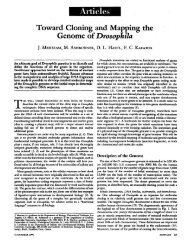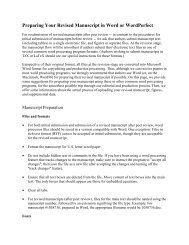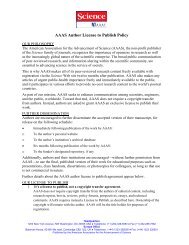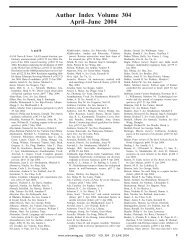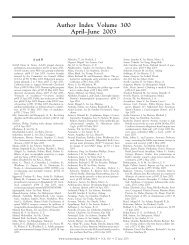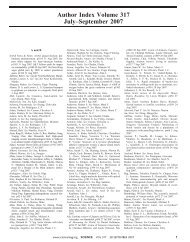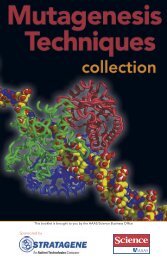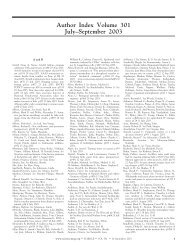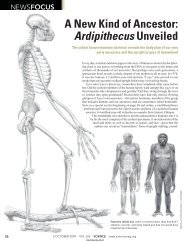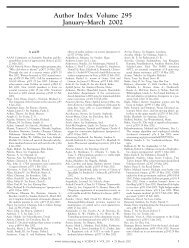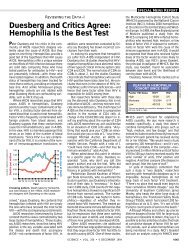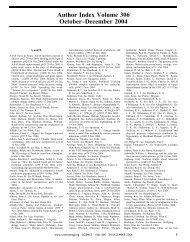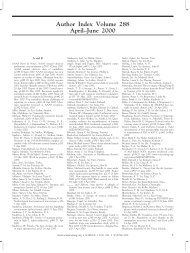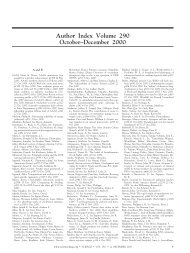Chinese Academy of Sciences (PDF) - low res version
Chinese Academy of Sciences (PDF) - low res version
Chinese Academy of Sciences (PDF) - low res version
You also want an ePaper? Increase the reach of your titles
YUMPU automatically turns print PDFs into web optimized ePapers that Google loves.
CREDIT: PHOTOS BY RICKY WONG<br />
Institute <strong>of</strong> Botany, CAS Guo Huadong<br />
students, USTC is small compared to other top <strong>Chinese</strong> universities; for<br />
its undergraduate program, it admits only students who score in the top<br />
0.3%–0.5% on China’s college entrance examination. Seventy percent <strong>of</strong><br />
those undergraduates later go on to graduate school, many at elite institutions<br />
in China and abroad. USTC Vice P<strong>res</strong>ident Chen Chusheng compa<strong>res</strong><br />
the university’s ambition to the nearby mountain Huangshan, said to be the<br />
most beautiful in China: “We don’t want to be the tallest one or the biggest<br />
one, but we want to be the best one.”<br />
Part <strong>of</strong> being the best is maintaining a tradition in which all pr<strong>of</strong>essors<br />
teach undergraduates and welcome them into their labs, Chen says. This<br />
tradition began when USTC was founded in the 1950s by some <strong>of</strong> the leading<br />
lights in <strong>Chinese</strong> science, who then taught at the university. Similarly, he<br />
says, being part <strong>of</strong> the CAS system makes the university less hierarchical<br />
than others in China. “In science everyone is equal, so our students can<br />
always challenge the pr<strong>of</strong>essors, or pr<strong>of</strong>essors can challenge the p<strong>res</strong>ident<br />
<strong>of</strong> the university,” he says. Yao Yuxi, a sophomore physics student at USTC,<br />
agrees. “Almost every one <strong>of</strong> us have the opportunity to get into a lab if<br />
we want to be a part <strong>of</strong> it, and they will accept us, one hundred percent,”<br />
he says.<br />
As for the graduate students, though, Chen concedes that the highest<br />
achievers <strong>of</strong>ten prefer to go abroad rather than get a Ph.D. at USTC or<br />
another <strong>Chinese</strong> university. “This is the key factor limiting the quality <strong>of</strong> <strong>res</strong>earch<br />
nationwide, not just this university,” he says. “But as time goes by,<br />
more <strong>of</strong> the best students are choosing to stay in China for their Ph.D. studies.”<br />
Last year, two <strong>of</strong> USTC’s top five graduating physics majors stayed<br />
at USTC for their graduate work. Chen is clear that he thinks overseas<br />
experience is very valuable, however, and that his goal is not to see all <strong>of</strong> the<br />
university’s best undergraduates stay on at USTC through graduate school.<br />
“We would like a more balanced situation,” he says.<br />
Consultation<br />
In addition to its <strong>res</strong>earch and educational functions, CAS serves as China’s<br />
most elite scientific honorary society, with about 700 members chosen on<br />
the basis <strong>of</strong> their exceptional <strong>res</strong>earch records.<br />
Membership in CAS confers much more than a plaque on the <strong>of</strong>fice wall.<br />
“People say it’s an honor, and that’s true, but actually it’s a duty,” says Guo<br />
Huadong, director general <strong>of</strong> CEODE, who became a member late last<br />
year. “Becoming a CAS academician means, at my age, that it’s my task to<br />
train the new generation… it means you should work hard.”<br />
More concretely, becoming a CAS member <strong>of</strong>ten puts a scientist on the<br />
fast track to an administrative position. It also places him or her in one <strong>of</strong><br />
CAS’s six Academic Divisions, which act as think tanks that advise policymakers<br />
on scientific, economic, and social issues. During the 2003 SARS<br />
outbreak, for example, the Academic Divisions gave advice on building <strong>res</strong>ponse<br />
systems, coping with panic, and treating patients, says CAS’s Lü.<br />
University <strong>of</strong> Science and Technology<br />
<strong>of</strong> China<br />
CAS members can propose policy report<br />
topics, and if their proposals are accepted,<br />
they will receive funds to complete <strong>res</strong>earch<br />
and write the reports. Or they can write a<br />
letter directly to top policymakers. “They<br />
have a very special channel to the central<br />
government,” explains Lü. CAS provides<br />
similar consultation services to local and<br />
provincial governments.<br />
So what is the common thread tying together<br />
CAS’s many functions<br />
and long, disparate<br />
history? As Lü says, “CAS<br />
is a locomotive driving force<br />
for science and technology<br />
development in China.” And<br />
as the academy continues<br />
to build world-class facilities,<br />
recruit top talent, educate<br />
the best and brightest<br />
<strong>of</strong> the next generation,<br />
and advise policymakers,<br />
it looks set to remain such<br />
a force for a long time to Qu Jiuhui<br />
come.<br />
“As time goes<br />
by, more <strong>of</strong> the<br />
best students are<br />
choosing to stay<br />
in China for their<br />
Ph.D. studies.”<br />
Editorial News Report<br />
7



